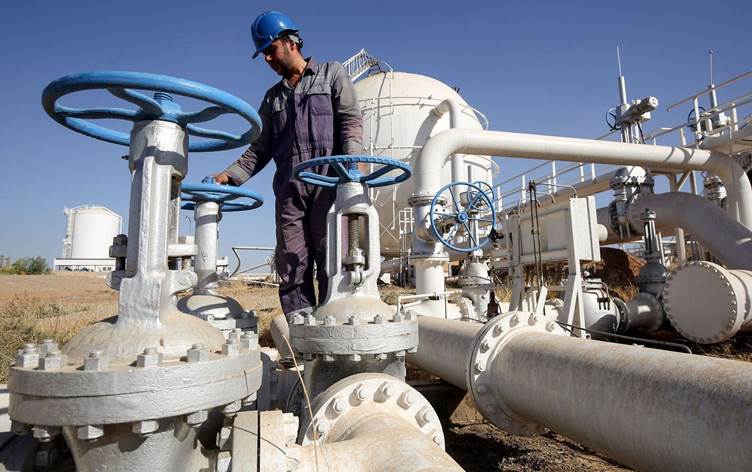
An Iraqi oil employee checks pipelines at the Bai Hassan oil field, west of Kirkuk. Photo: AFP
ERBIL, Kurdistan Region - The Iraq-Turkey pipeline exporting Kurdish crude oil through the Turkish port of Ceyhan is ready for operation and oil exports are expected to resume “this week,” Turkey’s energy and natural resources minister announced on Monday, nearly seven months after a court ruling rendered it unusable.
Alparslan Bayraktar “stated that the Iraq-Turkey oil pipeline is ready for operation as of today and will be operational within this week,” Turkey’s state-owned Anadolu Agency said.
It marks a breakthrough in talks with oil exports from the Kurdistan Region through the Iraq-Turkey pipeline halted since March 23 after a Paris-based arbitration court ruled in favor of Baghdad against Ankara, saying the latter breached a 1973 agreement by allowing Erbil to begin independent oil exports in 2014.
The halt in exports has caused the Kurdish and Iraqi governments about $6 billion dollars of losses since March, a senior Kurdish official said late last month.
About 400,000 barrels of oil were being exported daily by Erbil through the pipeline which runs to the Turkish port of Ceyhan before the halt, in addition to some 75,000 barrels from Kirkuk oil fields controlled by the Iraqi government.
In late August, Bayraktar met with Iraqi Oil Minister Hayyan Abdul Ghani to discuss the resumption of crude oil exports.
In July, Turkish President Recep Tayyip Erdogan said in a press conference that the suspension of the Kurdistan Region’s oil exports was the result of problems between the federal government and the KRG and that Ankara had no issues with receiving the oil. Days later, Iraq’s oil ministry responded that Erbil and Baghdad are on the same page regarding the resumption of exports.
Article 13 of the Iraqi federal budget for 2023 obliges Erbil to hand over at least 400,000 barrels of crude oil daily to Iraq’s State Oil Marketing Organization (SOMO) to be exported through Turkey’s Ceyhan port, or to be used domestically in case it is not exported.







Comments
Rudaw moderates all comments submitted on our website. We welcome comments which are relevant to the article and encourage further discussion about the issues that matter to you. We also welcome constructive criticism about Rudaw.
To be approved for publication, however, your comments must meet our community guidelines.
We will not tolerate the following: profanity, threats, personal attacks, vulgarity, abuse (such as sexism, racism, homophobia or xenophobia), or commercial or personal promotion.
Comments that do not meet our guidelines will be rejected. Comments are not edited – they are either approved or rejected.
Post a comment